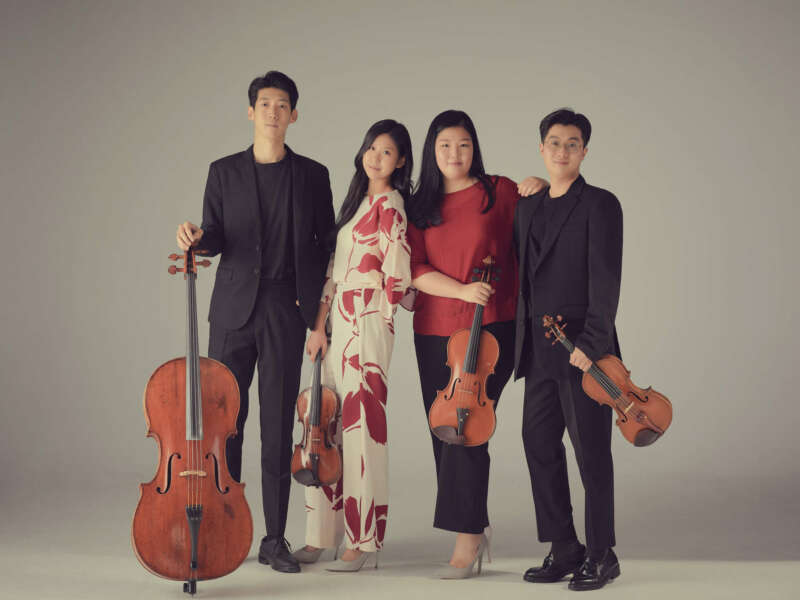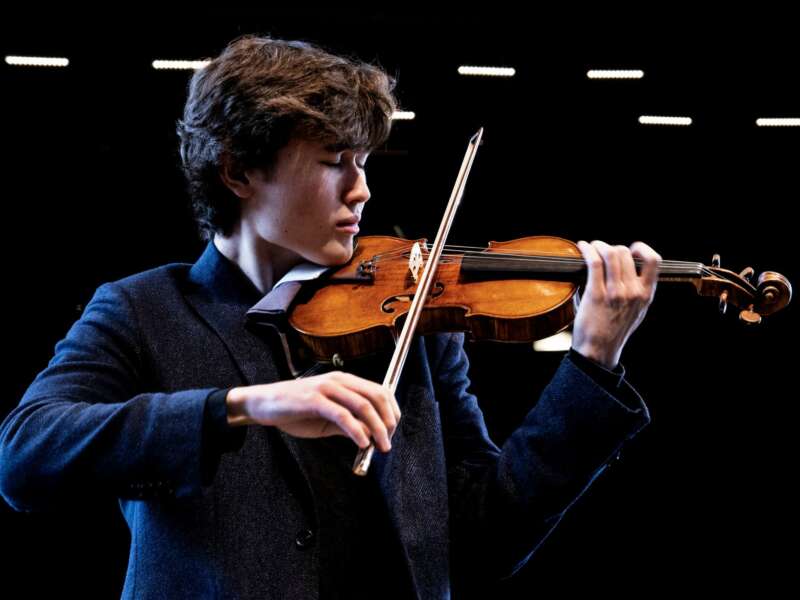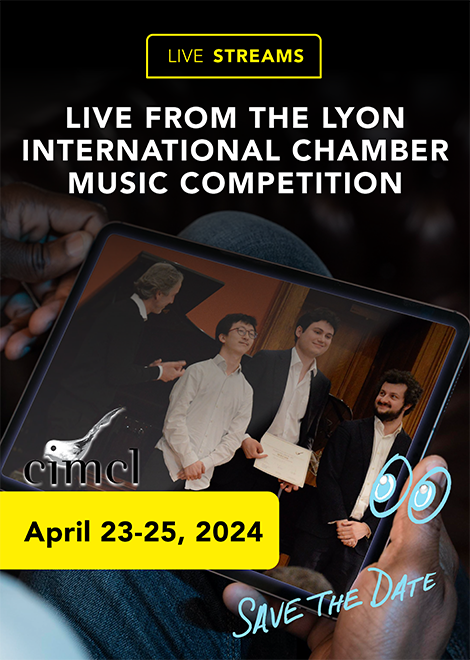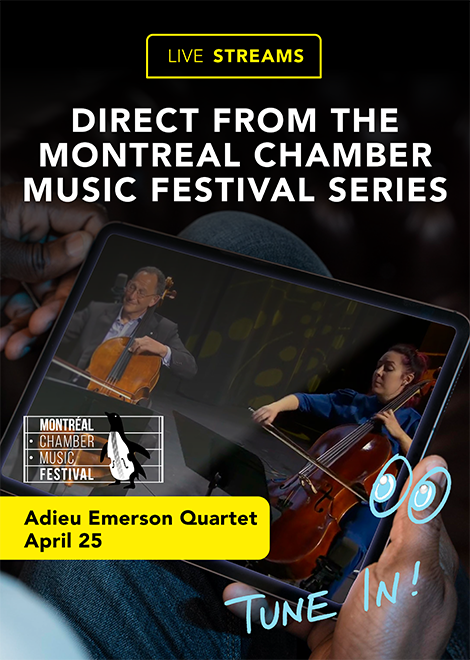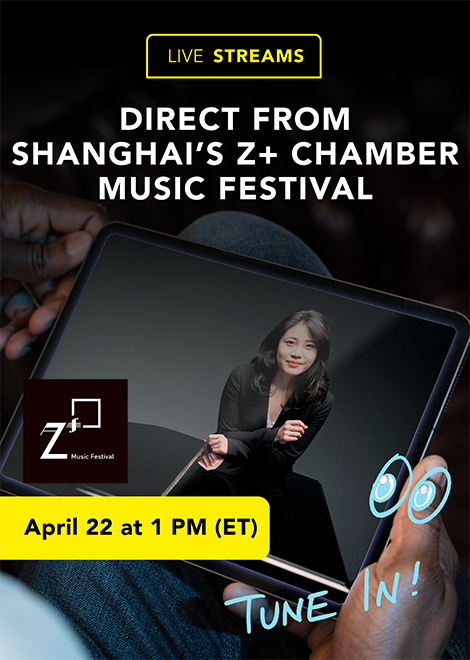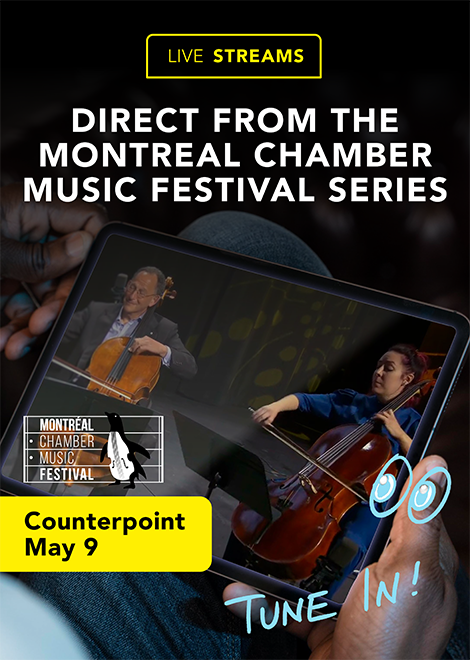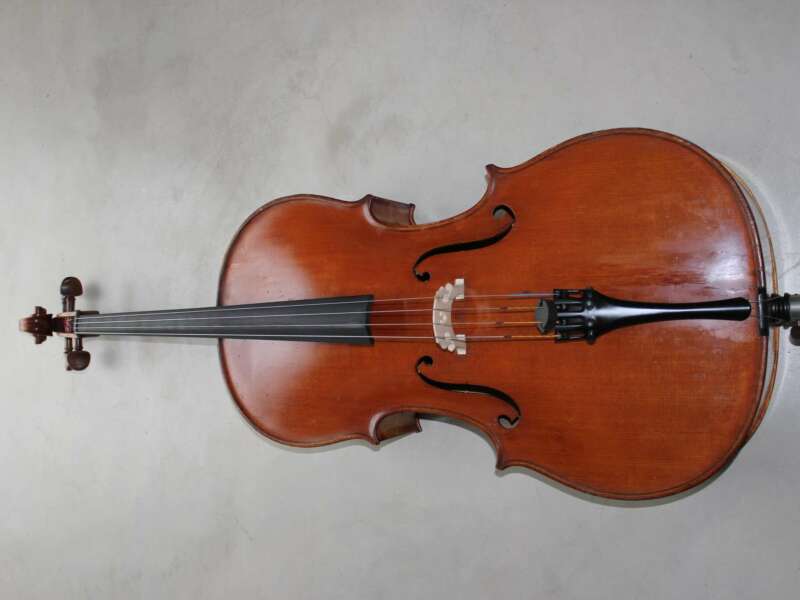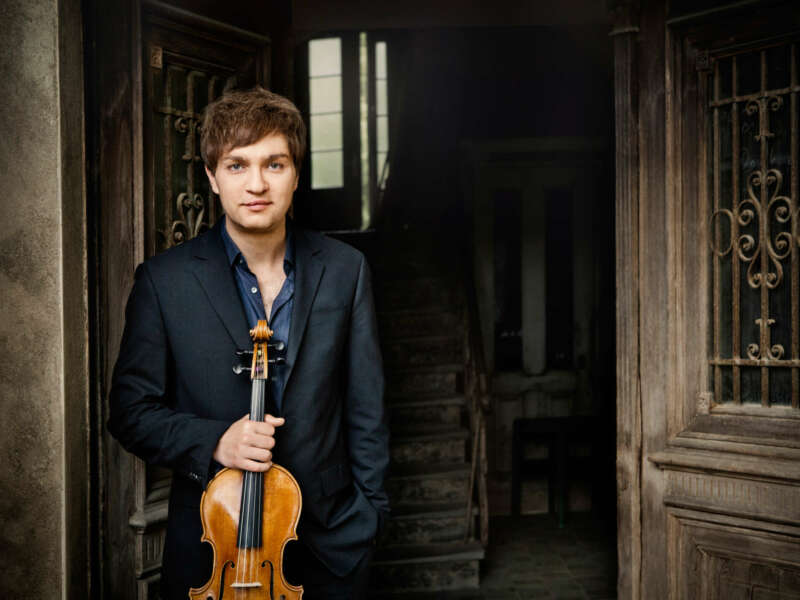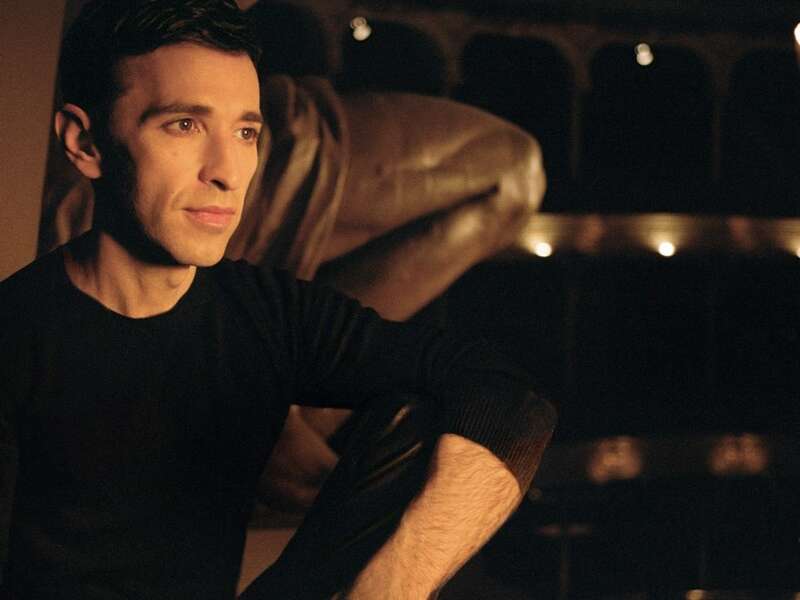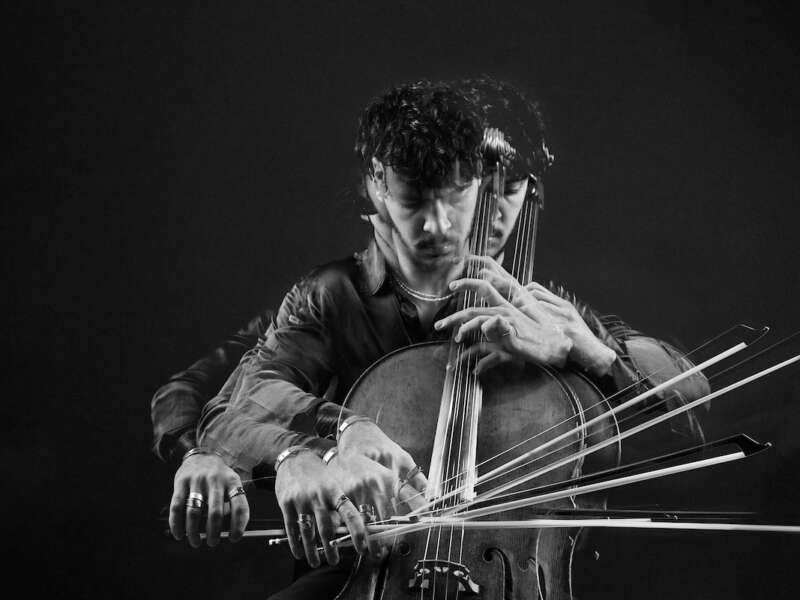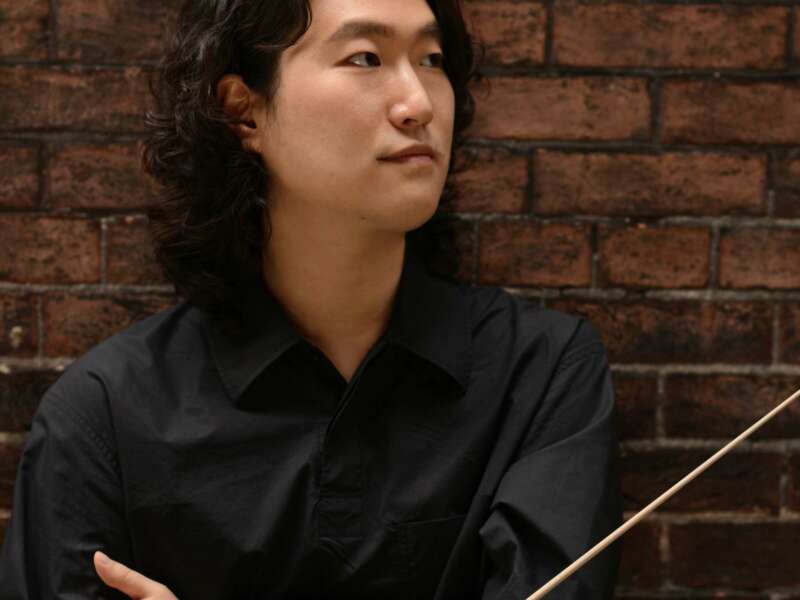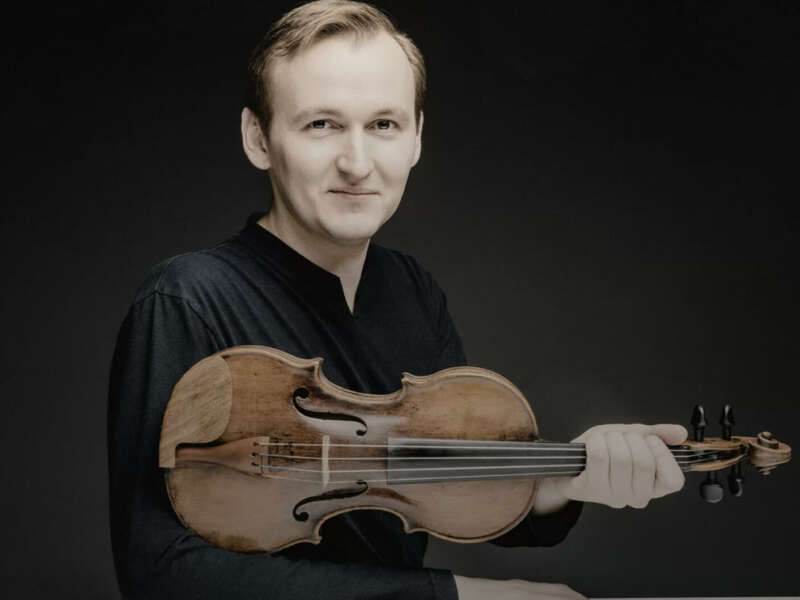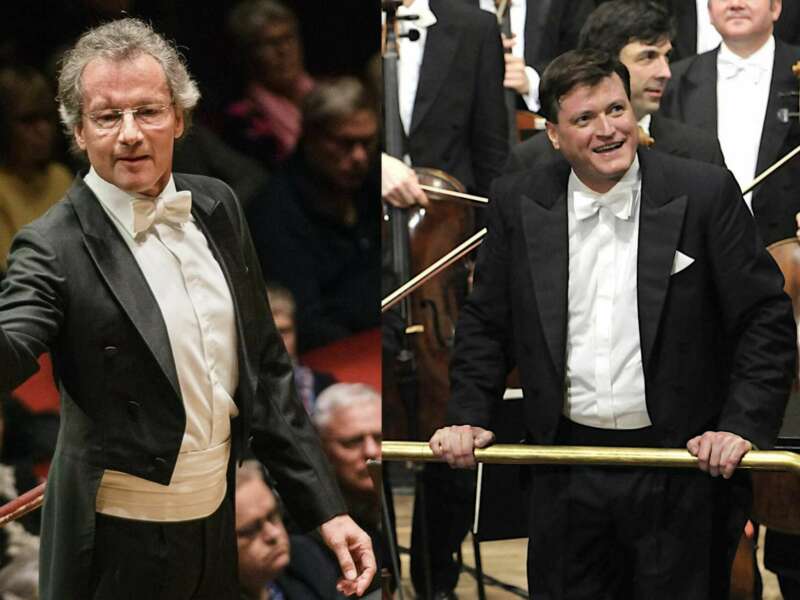Dr. Preston Hawes on violinist Dr. Virginia-Gene Rittenhouse's legacy
A recipient of the New York Concert Artists Guild Award, Dr. Rittenhouse founded an ensemble for her students in 1969 that now tours internationally in prestigious venues
The Violin Channel recently had a chat with Dr. Preston Hawes, current artistic director of the New England Symphonic Ensemble and previous student of violinist Dr. Virginia-Gene Rittenhouse, who founded the ensemble.
Tell us about Virginia-Gene Rittenhouse and her unique musical journey, being the first person to obtain a doctorate of Musical Arts Degree from the Peabody Institute of Music.
Virginia-Gene was born in Alberta, Canada in 1922 but shortly after moved to South Africa where she was raised. She began piano lessons with her mother and showed immediate prodigious talent in performance and in composition. At 10 years old she debuted on an American radio network broadcast, playing her own compositions; at 13, she won a scholarship to what is now would be called "pre-college" study in violin and piano at the University of South Africa. A year later, she performed Beethoven's piano concerto in C Minor and J.S. Bach's violin concerto in A minor with the Cape Town Municipal Orchestra.
In 1941 Virginia-Gene won the $2,500 London Associated Board Overseas Study award (then one of the the top music awards in South Africa) to study at the Royal Academy of Music in London. However, because of the war she was granted study in the USA and completed a degree in music Summa Cum Laude at the University of Washington in 1944. After a stint teaching, she enrolled and graduated with a Masters of Music from Boston University. After more teaching and much moving around the USA and Jamaica with her surgeon husband, Harvey, she enrolled at Peabody Conservatory in Baltimore to study piano with Leon Fleisher and violin with Robert Gerle. It is my understanding that in 1963 she was the first person to earn a Doctor of Music at Peabody and that she also did it in both piano and violin.
Rttenhouse later studied composition with Nadia Boulanger at the American School in Fontainebleau, France. She was also recipient and winner of many other awards including the New York Concert Artists Guild Award, the International Music Guild Award, and the New York Madrigal Society Town Hall Award
(More here: http://www.iamaonline.com/Bio/VGRittenhouse.htm)
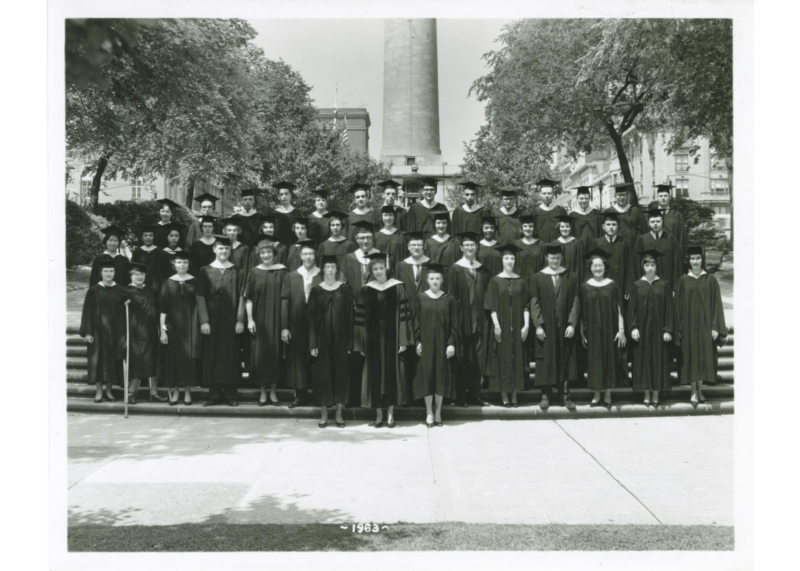
When did she found the New England Symphonic Ensemble and what was its original mission?
The NESE was actually the outgrowth of an earlier iteration made entirely of young students. This was called the New England Youth Ensemble, which still exists today, though now under the auspices of the NESE. The Youth Ensemble was formed in 1969 and comprised just four of her string students. They performed in churches and old folks homes around Sterling MA for about a year. It seemed fun to their friends, and so more kids joined. I don't think Dr. Rittenhouse really anticipated just how quickly the Ensemble would grow into a full orchestra.
The NEYE then began touring internationally every year, sometimes multiple times a year. When I joined in 1997, it had become an incorporated nonprofit; toured upwards of 40 countries; performed for President Ford and Queen Noor; and been guest conducted on tour by John Rutter.
The original mission of the Youth Ensemble was largely driven by Dr. Rittenhouse's deep faith within the Adventist traditions. One would often hear her talk about her goal of using music to "bring glory to God and the Refreshment of the Spirit" (paraphrased from J.S. Bach). She always referred to the ensemble members as her kids, as she didn't have any children of her own, and I believe she saw the Youth Ensemble as a way to open the eyes of these youngsters to how they could improve their own perspectives as well as use music in service of others.
The mission of the New England Symphonic Ensemble continues in many ways to draw from the experiences I had in the Youth Ensemble. The most impactful thing I learned while a member of the Youth Ensemble — which I now bring to my work as Director of the NESE — is that music has power to better the person and in turn to better the world. And so now, the NESE is dedicated to using music as an agent of positive change in the world, while inspiring a sense of adventure and solace to all.
How did the ensemble go from a living room to touring the world and performing on major stages including Carnegie Hall on a yearly basis?
It was in the early 1990s that Rutter mentioned to Peter Tiboris of MidAmerica Productions that he feature the group on stage at Carnegie Hall. This occurred with great success, and from this first interaction grew the New England Symphonic Ensemble which is now the resident orchestra of MidAmerica Productions.
After Dr. Rittenhouse passed away, I led the restructuring of the nonprofit to make things a bit more organized and streamlined. Now the NESE is the parent company, and runs what is called the Carnegie Scholars Program, from which elite members of the Youth Ensemble audition to perform with the NESE at Carnegie Hall. Sitting next to seasoned professionals augments their orchestral education and experience, allows them to learn in a real life setting, and establish relationships with musicians who may one day be their colleagues. This all occurs while being monitored and mentored through the program. It's a unique and special experience where many of our CSP alums return to volunteer, mentor the new upcoming musicians, and of course perform in the most famous hall in the world!
What have been some of the milestones of the ensemble?
The biggest most recent milestone, in all seriousness, was surviving the pandemic without having to permanently close. It was very close to happening but we were fortunate to have people behind us who knew they couldn't let that happen. They see the impact we bring to pre-professional musicians and our audiences alike, the camaraderie and loyalty we experience within the ranks of the Symphonic Ensemble, and that we have invested alumni who remember their time in the Carnegie Scholars Program who really stepped up to help us through.
Milestones are a regular when it comes to our collaborations with MidAmerica Productions. We have had a truly a striking roster of guest conductors, including John Rutter, Sherrill Milnes, Peter Tiboris, Helmuth Rilling, Simon Carrington, and Jonathan Willcocks. We have performed the world premieres of Dinos Constantinides' Byron's Greece, Hymn to the Human Spirit, and Midnight Fantasy II for wind ensemble; John Rutter's Cantate Domino, Distant Land, Magnificat, and Mass of the Children; and John Leavitt's A Christmas Garland. In addition, the NESE boasts multiple U.S. premieres, including Mozart's Die Schüldigkeit des Ersten Gebots, Reimann's Concerto for Violin and Cello, Tchaikovsky's Ode to Joy, and Rene Clausen's Hellas: In the Name of Freedom. We haven't done a lot of recording but I think the most well known one is from a while back, on the Naxos label with the late Barbara Smith Conrad.
An interesting "milestone" is that I was asked to assist in finding players for a scene shot at Carnegie Hall for the new Bernstein biopic starring Bradley Cooper. Many of the NESE core members can be seen in this film. (I was supposed to be in it too, but my hair was too short for the time period it was supposed to be showing. I offered to wear a wig, alas...)
Dr Rittenhouse was quite interested in composition and new music, having studied herself with Nadia Boulanger. How did this interest reflect on the ensemble? Can you tell us about a few of the pieces that the ensemble commissioned/premiered?
Dr. Rittenhouse was a very talented composer and had the fascinating ability to create improvised pastiches on the spot. Sometimes when an orchestra member would have a birthday, she would sit down to play Happy Birthday on the piano and we would should out "In the style of: [composer]." She could do Chopin, Beethoven, Mozart, Liszt, you name it. This would often devolve into us trying to stump her, or play our own new tune and ask her to make a fugue in the style of any one of those composers. She never failed at it.
For a number of years I used her Jamaican Suite as one of my recital staples. We also performed her African Suite for two pianos (with two of her former students as soloists) at Carnegie Hall. Both these pieces are essentially musical tableaus depicting some element of daily life she experienced while living in these countries. We also performed her oratorio Vision of the Apocalypse across the US, Africa, and recorded it twice — once in California and again in Iceland both times with her serving as narrator.
Dr Rittenhouse composed her first oratorio at just 12 years old, then the second, titled Vision of the Apocalypse, was premiered in New York’s Carnegie Hall in 2004, with a full orchestra, including many past and present NESE members. Can you tell us about those pieces?
She began composing Song of the Redeemed when she was just 12 years old while inspired by what she was reading in the book of Revelation and largely depicts the triumph of salvation. The oratorio stayed in her mind for years and she continued to tinker at it while leading a busy life. After accepting a teaching position at the Adventist college in Walla Walla, WA, she realized she had found a place and an audience with whom the oratorio would really resonate. So reworking some spots and adding to it, while also leaving many of the movements largely untouched from when she was 12, she felt then in 1945 it was complete and had it premiered there at the University. In 1966, she revived it again and Rittenhouse produced and performed it at Tokyo Metropolitan Festival Hall while on tour with the Ensemble. It is quite classical in nature, and reminds me at times of a young Mendelssohn.
The Vision of the Apocalypse also draws heavily on the Book of Revelation. Dr. Rittenhouse recounted to me once that when she first began thinking about writing another oratorio, she was studying with Nadia Boulanger. She had traveled to France and Madam Boulanger apparently asked her what it was she was currently working on. Virginia-Gene explained the concept of the oratorio needing to begin without a beginning as she was attempting to depict the mysticism of contemplating the divine as "The Alpha and The Omega; The Beginning and The End." I distinctly remember Virginia-Gene laughing as she recounted how Madam Boulanger told her to choose something less impossible to do. But then, sitting up with some earned pride when she said that at the end of the summer, Boulanger said it sounded to her like Virginia-Gene had accomplished the impossible. The work is quite long, and very grand in scope. If I remember right, the recording we did in Iceland required 65 to 70 musicians, and a choir of roughly the same size, plus the vocal soloists.
You have been playing with the ensemble since 1997 and is its current artistic director. What is your vision for the future of the ensemble?
My first time performing with the Ensemble was on a concert tour to Norway Sweden, Finland, Russia and Iceland. I was 16, and we played around 30 concerts in six weeks where I played the Mendelssohn violin concerto as soloist, and for the rest of the time was in the first violin section. Now about 15 or so tours and 40 countries later, having absolutely no idea how many concerts in total (but I think it's over 300 concerts at Carnegie, at least), I still find myself at the beginning of each season feeling both nervous and excited.
Since becoming the director I've really enjoyed watching the NESE become a regular music-making home for so many of the Carnegie Scholar alums. It is truly gratifying seeing them go from walking starry-eyed on stage at Carnegie Hall for the first time, to a few years later, watching them walk on stage as a seasoned professional in their own right, and with a young pre-professional next to them, eyes wide and probably somewhat terrified.
I know the budding musicians are in good hands. My vision for the Ensemble has for the past few years has been solely on recovering from the pandemic. Regenerating momentum takes a lot of energy, time, and effort, but I believe we are on the cusp of being able to again explore some expansion ideas that were being considered prior to the pandemic. I would love to see the Carnegie Scholars Program duplicated so the opportunity and access the Ensemble can offer can reach more people.
What is the main feedback you hear from students who have been part of the NESE?
That it is exhausting but one of the most rich learning experiences they've had — both musically, and just in terms of what it means to prepare for real life. For students to be a part of the NESE, they must be a member of the Carnegie Scholars Program and without fail, I see them forge life-long bonds with each other that stand the test of time and distance. It's like a family reunion when they come back. And the same goes for the professional members of the NESE. Our core members are like a tight knit family, that when the season is over, while breathing a sigh of relief, we still look around after the last concert and realize we are really going to miss each other! Sometimes there are tears...probably mostly of relief that we made it through the season, but maybe some other ones too, especially when someone has won another job and has had their last concert with us. We really enjoy our work, and that we get to make music together in such a stunning concert hall.
may 2024


